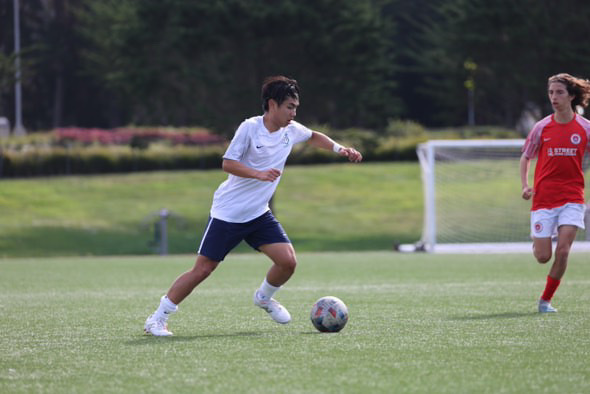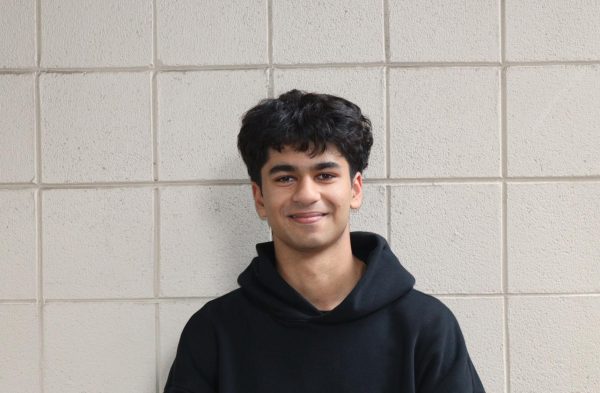
Sophomore Landon Pham, a center back for De Anza Force’s 09 MLS Next team, has been playing club soccer for 10 years. For the past 5, he has been playing MLS Next, previously at San Jose Earthquake’s academy and now at De Anza Force. His goal is to play Division 1 at UCLA, and he knows that his best chance is by impressing the college scouts who attend MLS Next games.
Junior Matthias Casanova has been playing soccer for around 9 years and has been part of the MLS Next program for the past 4. He played in a Development Academy team three years before that, which was eventually replaced with MLS Next. Despite his technical skill, the last two years for Casanova have been a struggle, as he feels some of his physical aspects and skills grew later than others. Now a center defensive midfielder for Santa Cruz Breakers MLS Next 08 team, Casanova wants to continue playing in the MLS Next program as the competitiveness and level of players around him will help him get to college soccer.
Senior soccer player Langdon Huynh also played in the MLS NEXT program for 2007 MLS Next Silicon Valley Soccer Academy team as a left wing. For the first two years of high school, soccer was a lifestyle of Huynh, playing for hours each day. Once he joined SVSA, he realized he had a higher chance of playing in college as most of the alumni go on to play college soccer. Later, Huynh decided he wanted to prioritize academics and not play soccer in college.
In the pursuit of college recruitment, top-level soccer players face a pivotal choice in the winter: to continue competitive club soccer or represent their high school team.
While high school is played with classmates, which is usually more fun, and allows players to compete with local players, participating in club soccer increases visibility in the recruitment process, offering the chance to further develop their skills and profiles.
All three athletes are an example of today’s college recruiting system. Those who decide to forgo high school sports often compete in the leagues designed for those who look to play for the highest level for boys’ soccer offered in the U.S.: Elite Clubs National League (ECNL) or the Major League Soccer (MLS) Next.
But when playing for the high school team, MLS Next Rules & Regulations states that players must not participate in neither high school nor middle school soccer. Due to this reality, players prioritize playing MLS Next to be in a more competitive environment with more college attention.
For Huynh, he had to weigh his priorities and goals when it came to playing soccer throughout high school. Huynh had played club soccer since he was 10, but as he got closer to his senior year, he thought he had a better chance academically. While he did talk to coaches for some schools, he ultimately decided that it was not worth it to sacrifice academics for schools he did not fully want to go to. Because of this, Huynh is now starring for the varsity team. Still, Huynh believes club soccer is the path that will develop a player better than high school.
“Club soccer is definitely more important if you want to get better at soccer and maybe even get recruited, but I think high school is better for more recreational play and to have fun,” Huynh said.
Casanova believes that the high level of competitiveness inevitably means that most people who are recruited to play college or even pro play club, very few if any play high school. Still playing club, Casanova hopes to continue with Santa Cruz Breakers until his senior year when he says he might play high school soccer if he is already committed to a school.
Pham has similar aspirations: to play for a Division I program in college.
“I think that club soccer is better at this level for my development. I want to play soccer in college and maybe even beyond, so I choose to play for Force [year-around],” Pham said.
Pham has been playing MLS Next for five years and aims to continue until senior year, during which he sees himself playing for the school team.
“I’ve been playing soccer for ten years and I would play high school soccer for fun, but I feel my goals [of college recruitment] are more accomplishable [by] playing in club,” Pham said, “I hope to go on and play in college one day, Division I is my hope and maybe even go pro.”

























